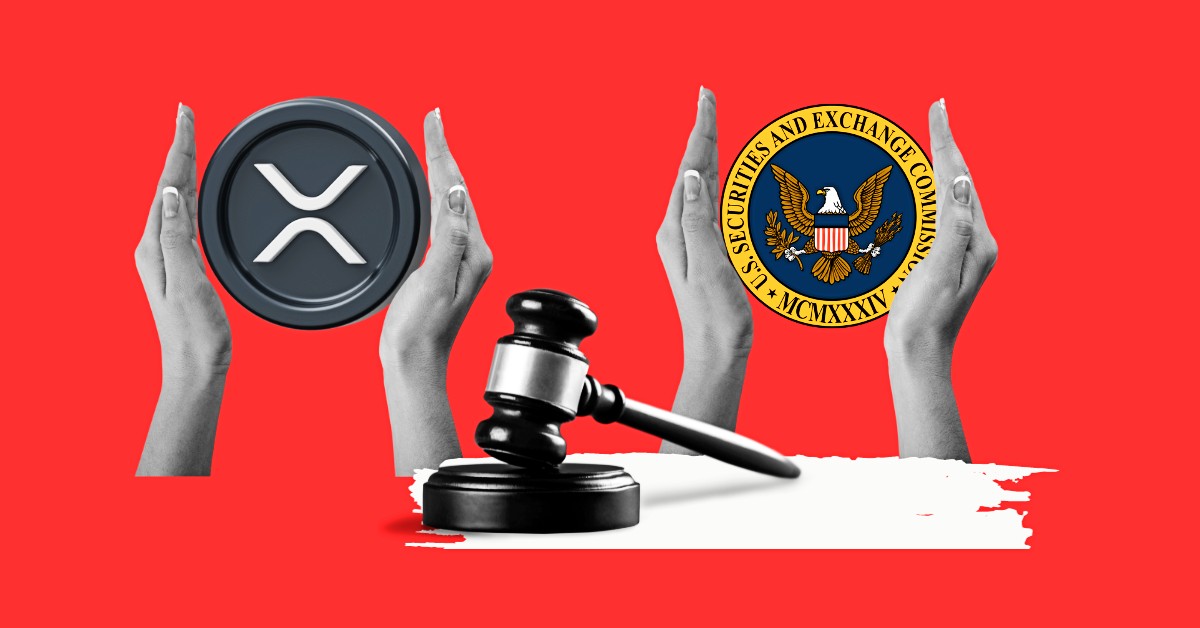Quote from
ephraim on October 27, 2023, 8:08 pm
Let's dive into one of the most significant legal battles currently unfolding in the world of cryptocurrency: the Ripple (XRP) vs. SEC case. This case has captured the attention of the crypto community and beyond, as it could set a precedent for how digital assets are regulated in the United States and potentially worldwide.
The Ripple-SEC Saga:
The legal battle began in December 2020 when the U.S. Securities and Exchange Commission (SEC) filed a lawsuit against Ripple Labs, the company behind XRP, and its executives. The SEC alleged that Ripple had conducted an unregistered securities offering by selling XRP, classifying it as a security rather than a digital currency.
The SEC's Argument:
The SEC contended that Ripple's sales of XRP constituted an unregistered securities offering and that Ripple should have adhered to the same regulations as traditional securities. The lawsuit sought to hold Ripple and its executives accountable for the alleged violations.
Ripple's Defense:
Ripple vehemently denied the SEC's allegations, asserting that XRP should be considered a digital currency, not a security. Ripple argued that the case had wide-ranging implications for the entire crypto industry and that the SEC's actions threatened innovation and regulatory clarity.
Developments and Implications:
The legal proceedings have unfolded over the past couple of years, with both parties presenting their arguments and seeking to sway the court. The case has witnessed several key developments:
-
Impact on XRP: The lawsuit had a substantial impact on the value and trading of XRP. Many cryptocurrency exchanges delisted or suspended XRP trading, causing significant market turbulence.
-
Crypto Regulation: The outcome of this case is expected to shape how cryptocurrencies are regulated in the United States. It could establish a legal precedent for distinguishing between securities and digital currencies, affecting other cryptocurrencies' regulatory status.
-
Global Ramifications: The ripple effect of this case extends beyond U.S. borders. It underscores the importance of regulatory clarity and consistent classification of cryptocurrencies on a global scale.
Awaiting a Verdict:
At the time of this post, the case is ongoing, and the crypto community eagerly awaits the court's final verdict. The outcome will likely have far-reaching consequences, potentially providing clarity on how regulators view and regulate digital assets.
In conclusion, the Ripple vs. SEC case is a pivotal moment in the cryptocurrency industry's history. It raises fundamental questions about the classification of digital assets and their regulatory treatment. Regardless of the verdict, the case highlights the need for transparent and consistent cryptocurrency regulations to foster innovation while ensuring investor protection. We'll keep a close eye on this case's developments and its broader impact on the crypto space.
Let's dive into one of the most significant legal battles currently unfolding in the world of cryptocurrency: the Ripple (XRP) vs. SEC case. This case has captured the attention of the crypto community and beyond, as it could set a precedent for how digital assets are regulated in the United States and potentially worldwide.
The Ripple-SEC Saga:
The legal battle began in December 2020 when the U.S. Securities and Exchange Commission (SEC) filed a lawsuit against Ripple Labs, the company behind XRP, and its executives. The SEC alleged that Ripple had conducted an unregistered securities offering by selling XRP, classifying it as a security rather than a digital currency.
The SEC's Argument:
The SEC contended that Ripple's sales of XRP constituted an unregistered securities offering and that Ripple should have adhered to the same regulations as traditional securities. The lawsuit sought to hold Ripple and its executives accountable for the alleged violations.
Ripple's Defense:
Ripple vehemently denied the SEC's allegations, asserting that XRP should be considered a digital currency, not a security. Ripple argued that the case had wide-ranging implications for the entire crypto industry and that the SEC's actions threatened innovation and regulatory clarity.
Developments and Implications:
The legal proceedings have unfolded over the past couple of years, with both parties presenting their arguments and seeking to sway the court. The case has witnessed several key developments:
-
Impact on XRP: The lawsuit had a substantial impact on the value and trading of XRP. Many cryptocurrency exchanges delisted or suspended XRP trading, causing significant market turbulence.
-
Crypto Regulation: The outcome of this case is expected to shape how cryptocurrencies are regulated in the United States. It could establish a legal precedent for distinguishing between securities and digital currencies, affecting other cryptocurrencies' regulatory status.
-
Global Ramifications: The ripple effect of this case extends beyond U.S. borders. It underscores the importance of regulatory clarity and consistent classification of cryptocurrencies on a global scale.
Awaiting a Verdict:
At the time of this post, the case is ongoing, and the crypto community eagerly awaits the court's final verdict. The outcome will likely have far-reaching consequences, potentially providing clarity on how regulators view and regulate digital assets.
In conclusion, the Ripple vs. SEC case is a pivotal moment in the cryptocurrency industry's history. It raises fundamental questions about the classification of digital assets and their regulatory treatment. Regardless of the verdict, the case highlights the need for transparent and consistent cryptocurrency regulations to foster innovation while ensuring investor protection. We'll keep a close eye on this case's developments and its broader impact on the crypto space.
Uploaded files:









